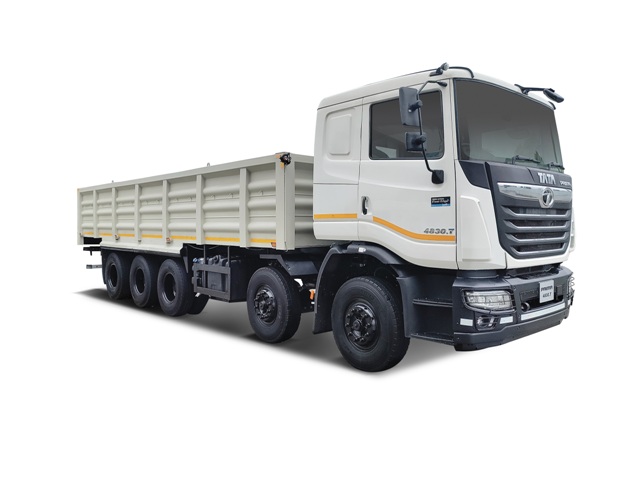Gujarat, Ahmedabad 01 April 2025: India’s road transport sector is the backbone of its economy, moving over 60% of the country’s freight. However, road safety remains a significant concern. In 2024 alone, media reports indicate that authorities issued 55,048 challans to trucks for violations such as overloading and reckless driving—nearly double the 28,422 recorded in 2023. Road accidents involving commercial vehicles not only result in tragic loss of life but also disrupt supply chains and increase operational costs.
Tata Motors, India’s largest commercial vehicle manufacturer, prioritises road safety through advanced technologies, intelligent fleet management and driver training programs.
“Safety is at the core of our design philosophy.From reinforced cabins to intuitive controls, every aspect of our trucks is engineered to enhance driver comfort and road safety, says Mr. Rajesh Kaul, Vice President & Business Head – Trucks, Tata Motors.
Advanced safety features such as enhanced braking, hill-start assist, and collision mitigation are increasingly becoming standard. While advanced driver assistance systems (ADAS) are still emerging in commercial vehicles, they hold immense potential for safer trucking in the future.
Intelligent fleet management is further revolutionizing road safety. Tata Motors’ connected vehicle platform, Fleet Edge, enables real-time vehicle tracking, driver behavior alerts, and predictive maintenance. “With Fleet Edge, our connected vehicle platfor, operators can make data-driven decisions that improve safety, efficiency, and profitability,” adds Mr. Kaul.
Technology alone isn’t enough—skilled drivers are essential. Tata Motors, in partnership with the Government of India, operates six Driver Training Institutes across the country. These institutes equip drivers with defensive driving techniques, modern vehicle handling skills, and road safety best practices.
Safety is not just a moral duty but a business necessity. Fleet operators prioritizing safety benefit from lower insurance costs, reduced downtime, and optimized operations. A well-maintained, safety-first fleet is a long-term investment that drives efficiency and builds trust with customers.
India’s trucking industry stands at a pivotal juncture. By embedding safety into vehicle design, leveraging fleet management, and investing in driver training, Tata Motors is committed to making road transport safer, smarter, and more sustainable.
-ENDS-

